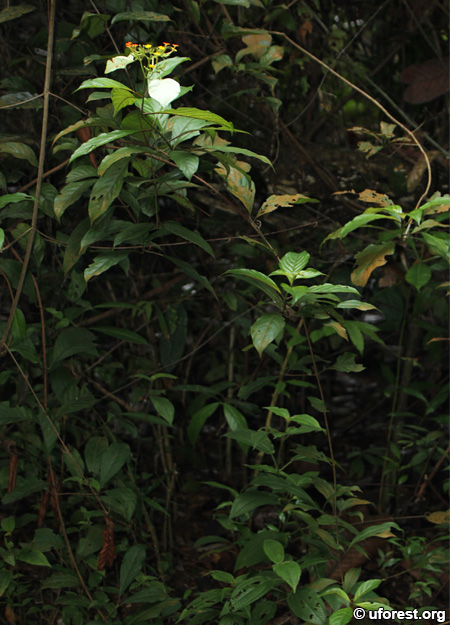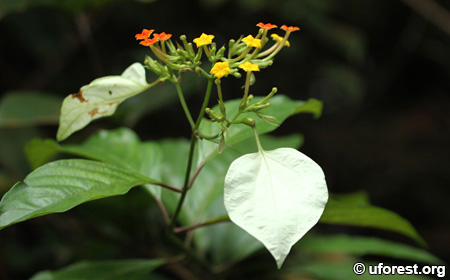Mussaenda glabra Vahl
| Etymology | Genus | Singhalese vernacular name for Mussaenda frondosa |
|---|---|---|
| Species | Smooth, without hair | |
| Family | Rubiaceae | |
| Synonyms | Mussaenda andersonii S.K.Basu & T.K.Paul, Mussaenda frondosa var. glabra (Vahl) Miq., Mussaenda pena | |
| Common Names | Hairless Mussaenda, Adap-Adap, Balik Adap | |
| Status | Native: Endangered | |
| Form | Shrub | |
| Native Distribution | Peninsular Malaysia, Singapore | |
Diagnostics:
Mussaenda glabra is an understorey forest shrub up to 1m. The hairless leaves are thin, with occasional red veins and petiole, with a pointed drip-tip. The red or yellow inflorescence are guarded by 1 or 2 white bracts.
Interesting Facts:
The whole plant of the Hairless Mussaenda is finely pasted and traditionally used as an ointment as an anti-coagulant and pain-relief in Tripura, Northeast India (Pandey & Mavinkurve, 2014).

A Hairless Mussaenda in Central Catchment Reserve (2013)

Leaf upperside.

Leaf underside.

Flowers, with white bracts.
References
Pandey A, Mavinkurve RG (2014) Ethno-Botanical usage of Plants by the Chakma Community of Tripura, Northeast India. Bulletin of Environment, Pharmacology and Life Sciences, 3(6): 11-14.
Author: Siyang
Posted: 2018-12-17
Google Ads